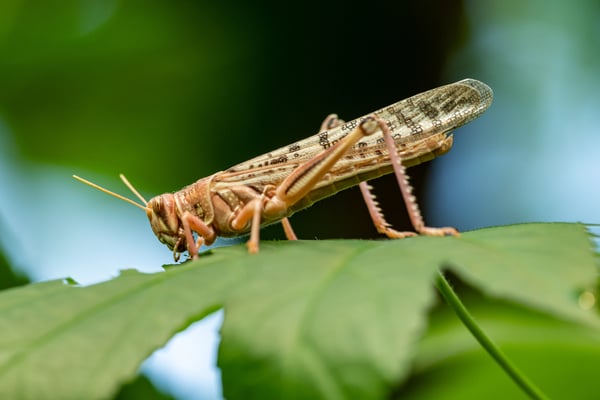The State of Israel is considered a global expert at dealing with such infestations.
By TPS
President of Sardinia, Christian Salinas, recently contacted the Israeli Ambassador to Italy, Dror Eder, and asked him to examine ways in which the State of Israel can help Sardinia address its ongoing problem with an infestation of locusts.
Israel has a long history of aiding other nations with their agricultural issues. And the country continues to be at the forefront of the development of new agricultural technologies. So, it makes sense that a small country like Sardinia would turn to Israel for help with such a problem.
Sardinia is located west of the Italian Peninsula, north of Tunisia and immediately south of the French island of Corsica. It is the second-largest island in the Mediterranean after Sicily and while part of the nation of Italy, the island has the official status of the Autonomous Region of Sardinia.
The island of Sardinia attracts tourists from all over the world. But it turns out that in the last three years its residents, who make their living mainly from agriculture and fishing, have also been visited by the least desirable type of tourist: locusts.
Locusts, although not harmful to humans or animals, are a public nuisance that can cause heavy damage to agricultural crops. The State of Israel is considered a global expert at dealing with such infestations, which is why the Sardinian government turned to it for help.
Israel wasted no time in responding to this request. A messenger from the Ministry of Agriculture, Dr. Yoav Motro, was sent to Sardinia, in cooperation with a number of representatives of prominent agro-tech companies in the field from Israel, including ALTA, which helps fight locusts in Israel and Africa. ALTA was first established in 2015 by Israeli Naval Veterans to provide agricultural solutions for farmers using UAV technology.
The Israel delegation went on a quick visit and studied the locust situation at the site. Later, Italian professionals were presented with recommendations for dealing with the situation.
Immigrants from Morocco?
In Israel, the Plant Protection and Audit Services at the Ministry of Agriculture are in charge of managing the spread of locust swarms.
Israel has a standing response to such infestations in which the locusts are monitored at all stages of their lives, in order to determine the best methods of action to prevent damage to local agriculture. The last case of a locust attack in Israel occurred in April 2021, in the Arava region, and was dealt with in less than two weeks.
Dr. Yoav Motro, the leader of the war on locusts of the Ministry of Agriculture, explains that “Compared to Israel, where the desert locusts found in Sudan are common, the locusts common in Sardinia are Moroccan locusts.”
Sardinia has been working hard to eradicate it for three years but without much success. Unlike the desert locust, the Moroccan locust does not migrate to Sardinia but empowers the local populations there. The Moroccan locust is more “predictable” spatially, as it is possible to expect where it is coming from and where it is progressing, but the treatment of the problem is similar and requires special, cross-authority attention.
“After two days in the field studying the locusts in Sardinia, it can be said that the severity of the situation in Sardinia is moderate, and we were happy to give recommendations for treatment with regard to the times and nature of the spray, which include precise pest control, especially at night,” added Motro.
